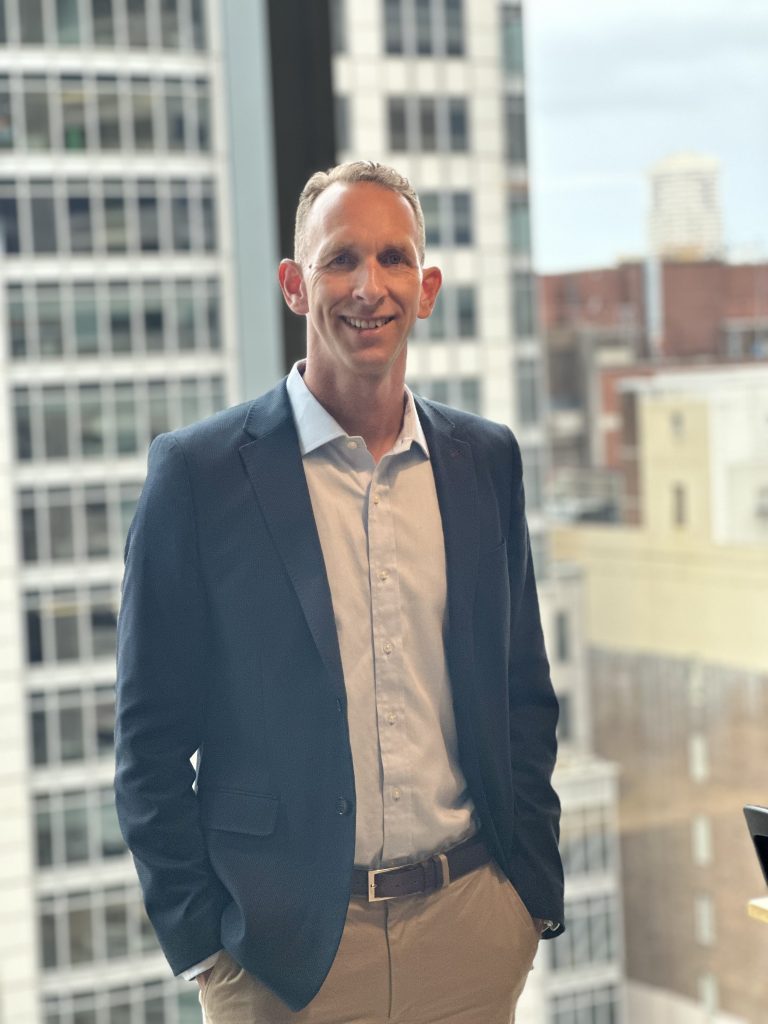On the lighter side of things, we ask Jeremy Howcroft, CEO, n3 Hub, what makes him tick.
What would you describe as your most memorable achievement?
Turning around the business that is now n3 Hub is high on the list. About four years ago, our company, n3 Group, saw an opportunity to acquire Fulcrum Hub, a customer data platform with amazing technology and some really talented people. It was making a loss but I felt quietly confident that by putting a commercial lens over the marketing, service delivery and growth plans, we would be able to steer it in the right direction. Four years later, it’s cash flow positive, making a profit and growing at a healthy 10% to 20% a year.
What first made you think of a career in technology?
It wasn’t a deliberate choice but with a background in accounting and business analysis it was hard to avoid. In common with many other New Zealanders, I did a stint in London in my younger years which happened to coincide with the dot-com boom. Working with a number of start-ups in business analyst roles highlighted the potential that the Internet, and technology in general, can add to businesses and I’ve dipped in and out of the sector ever since.
What style of management philosophy do you employ with your current position?
I see my role as creating clarity, generating energy and delivering success. My team members are the experts, not me, and if I employ smart people to make decisions, I shouldn’t be looking to tell them what to do. Encouraging and enabling people to develop their skills is also a passion of mine. If team members have opportunities to learn and grow, they’ll be more engaged and deliver better results. It’s also helpful to recruit people who have enthusiasm and drive; self-starters who are motivated and results driven.

What do you think is the current hot technology talking point?
In the marketing technology sphere where we operate, achieving a balance between personalization and privacy is a big one. Consumers want relevant, personalized information presented to them but, at the same time, they’re increasingly concerned about privacy and fearful that their information may not be safely stored and could fall into the wrong hands. Businesses, meanwhile, are cognisant of the financial and reputational damage a data breach can cause. They want to be able to have confidence that solutions and platforms that deal with their data and communicate with their customers are doing so in a secure manner. At n3 Hub, obtaining ISO 27001 and SOC2 certification has helped us demonstrate to our clients that we take information security very seriously.
How do you deal with stress and unwind outside the office?
For me, exercise has always been the key. I describe myself as an ‘active relaxer’ so when I’m out of the office or on holiday, I’m either running, swimming or surfing – in spite of my wife’s disdain! Her idea of a holiday is lying next to a pool with a glass of wine. I enjoy that too but only after some activity. We live about 50 minutes’ drive from the west coast of Auckland and I try to get out there at least once a month, to catch a few waves or do a weekly ocean swim. This year’s goal is to complete an ultra-marathon – my first – and squeezing the training sessions in before, during and after work will be a challenge. We’re also parents to three teenage boys who keep us very busy with their activities and adventures.
If you could go back and change one career decision, what would it be?
There’s nothing in my career I’d really change. If I’d stayed in London for longer – we signed off in 2003, after four years – I imagine I would’ve built a stronger network in Europe. That’s something I could possibly leverage now but, at that time, home was calling. We missed the outdoor lifestyle and wanted to start a family, and so New Zealand was where we wanted to be. There were good opportunities when we got back – consulting roles in the FMCG industry – and I’ve been fortunate enough to continue finding them ever since.
What do you currently identify as the major areas of investment in your industry?
Vendors are putting a concerted effort into improving the useability of their martech and customer data platforms. At the moment, there’s a real skills gap: marketing teams are acquiring this technology but, in some cases, struggling to use it effectively because of its complexity. You’re dealing with vast data sets and platforms that are capable of solving complicated problems and unless marketers are technically savvy, or have access to a marketing operations team, they don’t always realize the benefits. So, simplifying things is a big focus for us – and our competitors.
What are the region-specific challenges when implementing new technologies in APAC?
We commonly see customers disappointed with the service they receive around solutions they’ve acquired from multinationals. Vendors distribute products in this region but don’t support them as heavily as they might in North America or the EMEA region. That provides an opportunity for locally based companies like ours to step in and help out. As a smaller player, getting brand awareness and the opportunity to prove that we can match larger competitors on capability is our biggest challenge.
What changes to your job role have you seen in the last year and how do you see these developing in the next 12 months?
Post the pandemic, we’ve persisted with a hybrid working model which sees our team spending three days in the office and two working from home, should they wish to do so. I have a high level of trust in our staff and it’s working well but, for me as a leader, it necessitates spending more time on face-to-face communication; making sure I remain connected with everyone and am providing them with the clarity they need to work effectively. We see a big opportunity for growth in Australia and I anticipate spending a lot more of my time traveling ‘across the ditch’ over the next 12 months.
What advice would you offer to someone aspiring to obtain a C level position in your industry?
Don’t just hone your skills in your area of expertise. To move into the C suite, you have to become a salesperson and an accountant as well. By this I mean, you need to be able to sell your ideas to stakeholders, by presenting them concisely and compellingly, in ways that resonate. And you must be able to understand the commercial reality of whatever it is you’re proposing and the impact it will have, not just on your area of operations but on the enterprise as a whole. Finding a good mentor whose learning and experience you can tap into can be very beneficial. Cultivating a good network, by proving your worth and doing the right thing by people, is also vital. It can help you cut through uncertainty, access invaluable insights and do business at speed.
Click below to share this article

